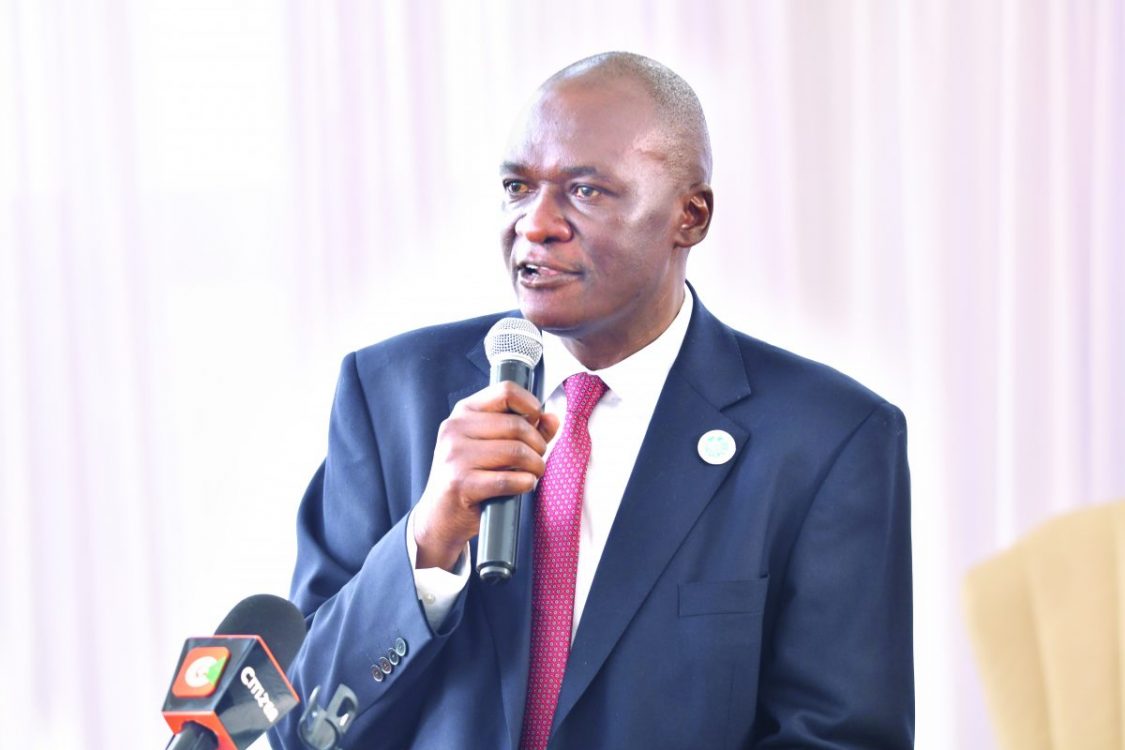Kenya will not close borders over Ebola outbreak, Amoth says
By George.Kebaso, October 14, 2022The government has assured neighbouring countries it will not restrict cross-border movement over the Ebola outbreak in Uganda even as the country faces significant risk due to sharing the common boundary.
Health Director General Dr Patrick Amoth, speaking in Kampala, Uganda on Wednesday said such restrictions are not helpful because of the close economic and social ties between Kenya and its neighbours.
He explained to delegates attending a high-level ministerial meeting on cross-border collaboration on the response to the disease that Kenya is highly prepared to counter any threats in case of an outbreak.
“Following the declaration of the Ebola disease outbreak in Uganda, we had to put in place measures to ensure public health security of Kenya and the people including heightened surveillance at points of entry,” he told journalists at the sidelines of the meeting also meant to review preparedness and response to Ebola virus disease among nine vulnerable countries.
The meeting brought together Ministers of health and government representatives from nine African countries. They agreed on joint measures to stop the potential spread of the Ebola Virus Disease (EVD) outbreak in Uganda and beyond its borders.
On September 20, Uganda’s Ministry of Health (MoH) declared the 8th EVD outbreak in Uganda. The current outbreak is caused by the Sudan Ebola virus species.
Amoth said it will be senseless for Kenya to close her formal borders, which are few, yet the porous entry points are many, where the government has little presence.
“So it is safer for people to come through the formal border points so that we can take their contacts for purposes of following up on them for better management of any reported outbreak,” he noted, reiterating an earlier government emphasis that any outbreak will be better handled through community engagement.
Some of the measures the government put in place to counter any threat according to Amoth included sending alerts to the counties; defining the case management for Ebola, and identifying a specific laboratory that will carry out tests for Ebola disease in case of an outbreak.
The Wednesday meeting yielded a joint communique after the high-level emergency ministerial meeting.
It was endorsed by the ministers of health and senior government officials from Burundi, the Democratic Republic of the Congo, Kenya, Liberia, Rwanda, Sierra Leone, South Sudan, Tanzania, and Uganda. It also intends to enhance measures to prevent the cross-border spread of the Sudan Ebola virus.
“They also agreed on disease surveillance, contact tracing and monitoring, prompt alert notification, information sharing, and joint training of emergency responders, as well as carrying out simulation exercises to enhance preparedness and response,” he revealed.
There will also be joint plans to carry out cross-border readiness, including raising public awareness and conducting community engagement campaigns, and rapid cross-border deployment of medical personnel to tackle the disease.
As of October 6, 2022, a total of 64 cases – 44 confirmed and 20 possible, 32 deaths – 12 confirmed and 20 likely fatalities have been reported.
A Risk assessment conducted by WHO showed that the risk of the disease spreading to other non-affected districts in Uganda and the neighbouring countries is high due to the cross-border movement of people for trade, cultural and social connections.
Last month the Ministry of Health assured Kenyans there was no cause for alarm after a suspected case of Ebola that was reported in Kakamega County turned negative.
More Articles

